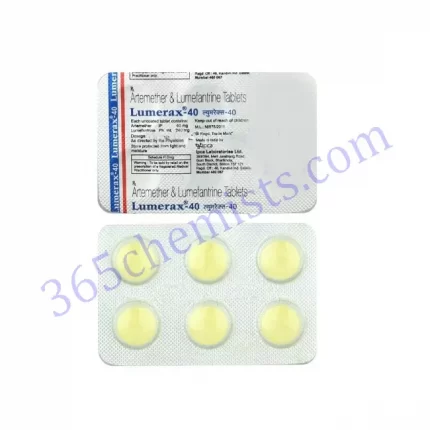INTRODUCTION
HQCHEAL 200 contains Hydroxychloroquine which belongs to the group of medicines called antimalarials. It is a disease modifying anti-rheumatic drug. (DMARD). Hydroxychloroquine used to treat rheumatoid arthritis and discoid and systemic lupus erythematosus (SLE) by reducing inflammation, pain, swelling and joint stiffness. It also improves the rash in patients with lupus. It is used in the treatment and prevention of malaria. Hydroxychloroquine interferes with the communication of cells in the immune system and hence is effective at treating autoimmune diseases. For malaria, this medicine works by killing the parasite that causes the infection.
Take this medicine as directed by your physician. It can be taken with or without food. The most common side effects of taking this medicine are headache, dizziness, diarrhoea or visual problems. Before taking this medicine inform your doctor if you are pregnant, breastfeeding or having any heart, kidney or liver disease. It is not recommended for use in children under 6 years of age. Consult your doctor before taking. Avoid grapefruit while taking this medicine.
USES OF HQCHEAL 200
- Treats rheumatoid arthritis (RA), systemic lupus erythematosus (SLE) and discoid lupus erythematosus (DLE)
- Prevent and treats malaria
HOW HQCHEAL 200 WORKS
HQCHEAL 200 works by suppressing the over activity of the immune system which causes inflammation and pain in the joints. It slows the progression of the underlying disease.
DIRECTIONS FOR USE
Take this medicine as directed by your physician. It can be taken with or without food. Your doctor will decide the correct dose for you depending upon your condition. Swallow the medicine as whole with a glass of water.
SIDE EFFECTS OF HQCHEAL 200
COMMON
- Nausea
- Stomach pain
- Stomach cramps
- Diarrhea
- Vomiting
- Loss or lack of appetite
- Visual problems like damage to the retina of the eye
- Headache
- Rash, itchy rash with raised red bumps
- Nervousness, quick changes in mood (emotional lability)
RARE
- Dizziness or vertigo
- Alopecia (hair loss)
- Change in skin colour, mucous membranes and hair
- Hearing problems
- Nerve and muscle problems
HOW TO MANAGE SIDE EFFECTS
Nausea:
Try taking this medicine with, or just after meal and stick to simple meals. Do not eat rich or spicy food.
Diarrhea:
Drink plenty of fluids to avoid dehydration. ORS should be used to prevent dehydration.
Dizziness:
Get up and move around to feel awake, take small naps to edge off the dizziness. Give your eyes a break to avoid fatigue and eat a healthy food to boost energy.
WARNING & PRECAUTIONS
PREGNANCY
HQCHEAL 200 should be used with caution in pregnant women. Consult your doctor before taking this medicine.
BREASTFEEDING
HQCHEAL 200 should be used with caution in breastfeeding women. Consult your doctor before taking this medicine.
DRIVING AND USING MACHINES
Do not drive or operate any machines while taking this medicine it may cause blurred vision.
ALCOHOL
Avoid consumption of alcohol while taking this medicine.
KIDNEY
HQCHEAL 200 should be taken with caution in patients with severe kidney disease. Consult your doctor for advice.
LIVER
HQCHEAL 200 should be used with caution in patients with liver function impairment or active liver diseases. Consult your doctor for advice.
ALLERGY
Do not take this medicine if you are allergic (hypersensitive) to Hydroxychloroquine.
HEART DISEASE
HQCHEAL 200 should be taken with caution in patients with myocardial infarction or any other heart disease. Consult your doctor for advice.
OTHERS
Inform your doctor before taking this medicine, if you have,
- Low levels of potassium, calcium or magnesium in your blood, or have a condition that may affect the levels of those salts in the blood (e.g eating disorder or prolonged vomiting)
- Diabetes or symptoms of low blood sugar
- Skin disease called psoriasis
- Gastrointestinal disorders
INTERACTIONS
Talk to your doctor, if you are taking,
- Medicines used to treat malaria (e.g chloroquine, mefloquine, quinine)
- Medicines used to treat depression (e.g tricyclic antidepressants) and psychiatric disorders (e.g., antipsychotics)
- Medicines used to treat heart conditions, cardiac arrhythmias (e.g digoxin)
- Medicines used to treat diabetes (e.g anti-diabetic drugs, including insulin)
- Medicines used to treat epilepsy or seizures
- Medicines used for infections (e.g. aminoglycosides antibiotics, erythromycin)
- Medicines used to treat muscle disorders (e.g neostigmine and pyridostigmine)
- Medicine used to treat heartburn (e.g cimetidine)
- Immunosuppressant medicines (e.g cyclosporine)
- Medicines known as CYP2C8 and CYP3A4 inhibitors (e.g. ketoconazole, itraconazole, erythromycin, aprepitant, fluconazole, clopidogrel, teriflunomide, letermovir)
- Medicines to treat breast cancer (e.g tamoxifen)












